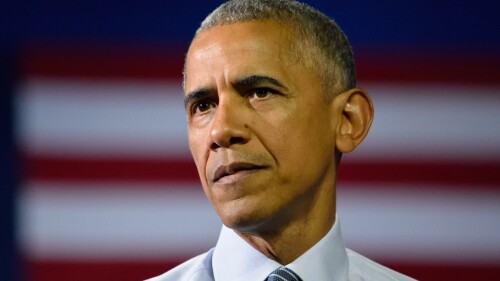The following briefing is based on a speech I delivered to the Florida Society for Middle East Studies (FSMES) on January 17, 2009. It was published by the Association for the Study of the Middle East and Africa (ASMEA). The briefing summarizes the projected challenges in the counter Terrorism campaigns in Iraq and Afghanistan and the expected crisis in Syria/Lebanon and Israel-Palestine. It highlights the centrality of the Iranian role on the one hand and the capacity of the Middle East Studies community to provide newer ideas.
Since September 11, 2001, the geopolitical landscape of the Middle East has been shaped by a new and dominant reality (the War on Terror), which has been a Jihadi global campaign against democracies in many areas around the world. Since the US and NATO intervention in Afghanistan in 2001, the challenges have been to maintain stability and freedom in that country and in Iraq, as well as countering the expanding influence of al Qaeda in Pakistan, the African Horn and beyond.
In addition, since the invasion of Iraq and the acceleration of the nuclear program by the Iranian regime, the challenge coming from Tehran is escalating. We’ve witnessed Iranian involvement in Lebanon with Hezbollah and in Gaza with Hamas. So, in short, whatever problems the Bush Administration has already confronted, the current administration will have to address, but perhaps with more urgency.
Iraq
The issue is not the principle of withdrawal but what would replace the Coalition and the ability of the Iraqi Government to resist al Qaeda and Iran’s influence. There is really no new data to process for the Obama policy architects. If Iraq is ready, the redeployment will take place as scheduled. But if the Iraqi institutions aren’t ready, there will be an al Qaeda return to the Sunni triangle and an Iranian penetration of central and southern Iraq. Perhaps the bet of the new administration is to strike a deal with the Iranians so that the exit from Iraq is smooth. If this is the case, then the US redeployment will be subject to Iran’s conditions. And if so, one has to wonder what these conditions are and what Tehran wants to impose on Washington in the region? Already one can see the challenge, particularly in light of the Iranian race to achieve nuclear armament.
Afghanistan
A new strategy in Afghanistan must be integrated into a regional approach covering Afghanistan, Pakistan and India, all three under democratic governments aimed at weakening terrorism. This is an opportunity to isolate the radicals across the regional borders. But that needs a structure that understands the ideological power of the terror forces.
Syria/Lebanon
The Syrian regime is a strategic ally of Iran, not an extension of it, as Hezbollah is to the Khomeinists. But Bashar’s regime is implicated in a terror campaign against the emerging Cedars Revolution in Lebanon. Damascus has an ideological claim over Lebanon and that cannot be undone without a massive reform of the Baathist regime. Also, Hezbollah, which receives hundreds of millions of dollars from Tehran, has seized more power in Beirut and further intimidated Lebanon’s fragile democracy. The question is how will the US Administration deal with Syria and Hezbollah in the near future? If it wishes to cut a deal with the Syrian regime, the price is clear, there are no secrets: It is Lebanon. If it wants to engage Hezbollah, it will have to talk with the masters in Tehran, which would bring Washington to square one in positioning towards Iran’s regime. The options regarding Lebanon and Syria are very limited and just biding time is not a policy.
Israel/Palestinians
The Bush Administration said it would support the two state solution, but Iran’s allies in the region have obstructed the process. Can the Obama Administration do better? It has two choices: either cut a deal with Iran to tame Hamas or support Mahmoud Abbas in establishing the state institutions. There are no magic solutions, but there will be strategic choices to follow.
Conclusion
In the end, the Obama response to all these challenges is going to be about who the advisors and experts are and what are their plans. And if you examine the situation closer -- you’d realize that the expert group which will be tasked to help President Obama will come from or be influenced by the Middle East Studies community. Which brings us back to the state of this field, eight years after 9/11: Is this community ready and able to provide the new president and his administration with the appropriate advice?
******
Dr Walid Phares was a Professor of Middle East Studies at Florida Atlantic University from 1993 to 2005 and has been teaching Global Strategies at National Defense University since 2006. He is a Senior Fellow at the Foundation for Defense of Democracies in Washington and a Visiting Fellow at the European Foundation for Democracy in Brussels. He is the author of The Confrontation: Winning the War against Future Jihad.





